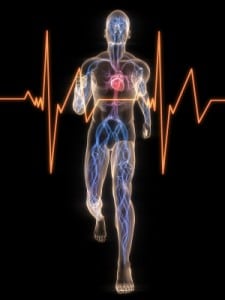 Niacin is the most effective drug to raise HDL levels. HDL many times is referred to as the “healthy” or “good” cholesterol. Niacin is vitamin B3 and can be obtained by prescription in the brand name Niaspan, or can be obtained over-the-counter. To raise HDL cholesterol much higher doses are needed than the niacin dose found in multivitamins.
Niacin is the most effective drug to raise HDL levels. HDL many times is referred to as the “healthy” or “good” cholesterol. Niacin is vitamin B3 and can be obtained by prescription in the brand name Niaspan, or can be obtained over-the-counter. To raise HDL cholesterol much higher doses are needed than the niacin dose found in multivitamins.
For every 1 mg/dl elevation in HDL cholesterol heart attacks go down 2% to 3%. This risk reduction is one reason pharmaceutical companies are spending mega-bucks to develop drugs to raise HDL cholesterol. But, that quest to develop more potent HDL elevating drugs may have been dealt a severe blow.
The findings of the AIM-HIGH trial conducted by the National Heart Lung and Blood Institute (NHLBI) were recently reported. The study looked at whether or not the combination of niacin and statin drugs in high-risk patients would reduce the risk of heart disease further than from use of statin drugs alone. Statin drugs are to used to lower the LDL, or “bad” cholesterol.
The study’s findings surprised many experts. AIM-HIGH revealed that the combination of niacin and statin did not additionaly lower the risk of heart attack compared to statin use alone, even though HDL levels improved in the combination group. The findings prompted the study’s investigators to terminate the study 18 months sooner.
Does This Mean That Niacin Has No Benefit?
Not necessarily. It could be that the use of statin drugs had lowered the LDL cholesterol sufficiently that further risk prevention was not possible in this study design. It’s also possible that the interaction of the two drugs offsets any risk prevention from raising HDL.
The results of a much bigger study of the drug tredaptive, a niacin formulation are expected in 2012 and many think it is premature to draw conclusions on the benefits of niacin based only on the AIM-HIGH study.
Should I Stop Taking Niacin?
It would be best to have that discussion with your physician. Niacin has other benefits. It lowers triglycerides and LDL cholesterol. Despite the findings from this single study many experts still believe raising HDL cholesterol reduces risk of heart attacks, and numerous studies show that individuals with higher HDL cholesterol have lower risk of heart attacks.
The real question is does modifying a risk factor actually modify the risk? That remains to be answered.
What Else Can I Do to Raise My HDL Cholesterol?
There’s plenty you can do to raise your HDL cholesterol.
- Perform aerobic exercise.
- Lose weight.
- Stop smoking.
- Eliminate trans fats.
- Consume 1 to 2 alcohol drinks per day (some discourage against recommending drinking).
- Consume monounsaturated fats like olive and canola oil.
- Increase intake of soluble fiber.
- Increase consumption of fish and omega-3 fatty acids.
To raise HDL cholesterol aerobic exercise should be performed 3 to 4 days a week preferably for 40 minutes/session as exercise duration is more important than frequency and intensity of exercise. A meta-analysis of studies looking at exercise effects on HDL found that for every 10 minutes of exercise above 20 minutes HDL cholesterol raised 1.4 mg/dl. Not a dramatic increase, but 40 minutes of exercise would increase HDL cholesterol to 2.8 mg/dl and that might be associated with a 6% to 9% reduction in heart attacks if raising HDL really reduces risk of heart attacks.
See related articles.

You may see niacin labeled in different ways. As part of a multivitamin or supplement, it’s often just referred to as niacin. When it’s used as a treatment to increase your HDL cholesterol or correct a niacin deficiency, it’s sold in higher doses that are prescribed by your doctor. It’s not possible to get enough niacin from the food you eat to increase your HDL cholesterol.
Agree.